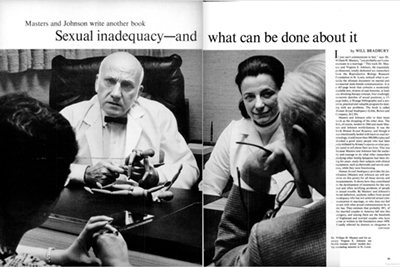Enjoy a vast number of articles and educational information written by Dr. Schwartz and Lori Galperin that showcase their take on a number of relational topics, marital issues, and current, relevant subject matter. Start your journey to a better, more fulfilling marriage by first learning more about yourself, then your partner, then the marriage as a whole. There are many possibilities that await you as you discover how to empower your yourself and your relationship, your marriage, possibilities that can lead to greater self- and other-knowing and far greater mutual satisfaction and enjoyment.
Low sexual desire is one of the most common problems found in marriages and long-term relationships. More than one third of women who go to their gynecologist have been reported to have shared that they would prefer to have sex infrequently and that actually, they do not enjoy sex much. Today, men are also claiming that their desire to have sex with their wives can and has dwindled. The result of not wanting sex leaves the partner that does want sexual intimacy feeling undesired and unloved, or the individual may start to question their commitment or love for their spouse, as a result of the lack of intimacy. Finding a knowledgeable therapist to deal with the issues associated with a lack of desire is difficult since there are few books that are helpful on the subject.
There are many contributing factors to love and desire. The most common blocks to intimacy include marital conflict, fatigue, stress, intimacy disorders, and avoidant attachment from unresolved, overwhelming childhood events and/or parental misattunement, a lack of knowledge about how to please one’s partner or pressures to perform, overuse of pornography, fears of intimacy, discomfort with one’s body, and self-hate and depression. Assessing the multiple contributing factors and addressing each of them require a great deal of skill, experience, and compassion.
The good news is that most of these blocks, these contributing factors to sexual intimacy, are reversible. We have come to believe that the hardest step to reversing sexual troubles is having the couple present for treatment at all, followed by the ability to maintain their commitment to solving their blocks to intimacy — work that can go deep and get difficult at times.
The success rate for those who are committed to getting to the bottom of the issue, alongside highly skilled therapy, is typically very high.
Dr. Mark Schwartz has extensive background and experience working with issue of sexual desire in couples. Having spent years as the director of the Masters and Johnson Institute, working side-by-side with renown researchers Masters and Johnson, he has spent much of his career focused on the blocks that prevent intimacy in marriages and long-term relationships.
Contact Dr. Schwartz for a free consultation at 831 747 1727 or via email.
 To tell you that the experiences gained from working with Masters and Johnsons for as many years as we did were invaluable, would be an understatement. Their professionalism, tenacity, and daring curiosity for the subject matters they ventured to study left a lasting mark on both Lori Galperin and myself. Their work and dedication has continued to inform our research, processes, and therapeutic style to this day.
To tell you that the experiences gained from working with Masters and Johnsons for as many years as we did were invaluable, would be an understatement. Their professionalism, tenacity, and daring curiosity for the subject matters they ventured to study left a lasting mark on both Lori Galperin and myself. Their work and dedication has continued to inform our research, processes, and therapeutic style to this day.
The building where Dr. William Masters and Virginia Johnson conducted research into human sexuality in the 70s and 80s looked a lot like a physicians’ office. Privacy and professionalism reigned. Clients worked their way past a conscientious and well organized receptionist, through locked doors, intercoms, and buzzers as they were escorted to their therapy session. Even the name on the door would never belie what went on behind it: Reproductive Biology Research Foundation.
 Dr. Masters often said that one must be “beyond reproach”—meaning, that those of us who worked with sexuality daily were at risk of seeming lascivious, so we combatted that by being hyper-professional and “squeaky clean.” Everyone wore a white lab coat and addressed each other by formal name (Dr. Schwartz or Mrs. Bowen) or — oddly — three initials (WHM and VEJ). Nobody inside those doors had sex with one another unless they were married. There was no flirting. The names of couples attending therapy were kept extremely private.
Dr. Masters often said that one must be “beyond reproach”—meaning, that those of us who worked with sexuality daily were at risk of seeming lascivious, so we combatted that by being hyper-professional and “squeaky clean.” Everyone wore a white lab coat and addressed each other by formal name (Dr. Schwartz or Mrs. Bowen) or — oddly — three initials (WHM and VEJ). Nobody inside those doors had sex with one another unless they were married. There was no flirting. The names of couples attending therapy were kept extremely private.
Occasionally the institute conducted research on fertility and the effectiveness of birth control, which required a supply of sperm samples. Paid donors, mostly medical students from Washington University, were warned to be mature and discrete or risk being banned from the program. They disappeared quietly into an otherwise sterile bathroom with a few issues of Playboy and a collection cup. (more…)


Dr. Mark Schwartz has spent more than 30 years studying human intimacy. Interning at the famed Masters and Johnson’s Institute right out of college, Dr. Schwartz went on to become the leading director of the Institute until it closed in the late ’90s, having worked closely for years with William H. Masters and Virginia E. Johnson. Masters and Johnson pioneered research into the structure of human sexual response and the diagnosis and treatment of human sexual and intimacy disorders and dysfunctions. (more…)
Listen in on Mark and Lori as they discuss the common pitfalls of broken relationships and how couple’s therapy can make all the difference in the world.
During the past 25 years, Dr. Mark Schwartz and Lori Galperin MSW, formerly of the Masters & Johnson’s Institute, have provided relationship therapy for hundreds of couples. Their extensive experience, across a broad array of issues, has taught them what is necessary for couples therapy and a marriage-saving, marriage retreat to be its most effective.
Marriage is a valuable asset. There are key reasons people marry and hope to stay married. From within a marriage, lives and careers are built, property and security is accumulated, children are created, and the deep desire for pair-bonding — the instinct we have for support, companionship, and love — is one of the greatest, life-enhancing benefits of all.
When a marriage begins to fall apart, so do all the stabilizing, nurturing forces in one’s life begin to fall apart. Before spending years unhappy and miserable for before taking that “no return” step through a divorce, consider if it’s worth saving. If even a tiny percentage of you says, “yes,” enroll the two of you in an Intensive Marriage Retreat immediately.
First, both partners must learn new ways of interacting. They must master skills for solving problems, listening, dealing with anger, frustration and passivity, and they must learn how to participate in quality interactions.
Second, they must practice these new ways of interacting until deep and authentic change takes place.
Third, they must be guided to examine the places where they are stuck or blocked that interfere with this change.
Rarely does once-a-week therapy allow for these three criteria to be met, regardless of how long over time the therapy continues. Momentum matters in therapy. The “right frequency” of sessions is critical to long-lasting success. (more…)
Can a retreat re-create love when a couple no longer feels the passion? When marriage therapy fails, is that a sign that the couple is better off apart? Is it better that a couple divorce rather than remain together in distress?
These and many similar questions bewilder couples, and yet there are clear answers to each of these questions, says Dr. Mark Schwartz and Lori Galperin, MSW, relational co-therapists for the past 30 years. Schwartz and Galperin were trained by the infamous William H. Masters and Virginia E. Johnson of the Masters & Johnson Institute and are co-directors of the Marriage Therapy Institute in Monterey, California. The Monterey Bay Area being one of the most beautiful settings available nationwide for a focused marriage slash relationships tune-up or an intensive “engine overall.”
Therapists recommend that no couple should stay together and make each other miserable. Instead, unhappiness is a critical alert to each individual in the coupledom. It tells the unhappy partner there’s a need to look at his/her own contribution to the problem. From there, the couple needs to establish new rules and contracts for change. (more…)
During the past 25 years, Lori and I have provided relationship therapy for hundreds of couples. Our extensive experience, across a broad array of issues, has taught us what is necessary for therapy to be its most effective.
First, both partners must learn new ways of interacting. They must master skills for solving problems, listening, dealing with anger, frustration and passivity, and creating quality interactions. Second, they must practice these new ways of interacting until deep and authentic change takes place. Third, they must be guided to examine the places where they are stuck or blocked that interfere with this change.
Rarely does once-a-week therapy allow for these three criteria to be met, regardless of how long the therapy goes on. Momentum matters in therapy. The right frequency of sessions is critical to long-lasting success.
Our solution, and one that has worked well for us over the past 25 years, is this: The retreat model calls for initial intensive therapy away from home, followed by at-home sessions as needed. We have the couple stays for seven days at accommodations near our Institute. We meet with them three hours each day and then have them use the rest of the day to practice the skills and techniques we discussed. This concentrated focus on healing the relationship is very effective when done away from work, kids and other stressors. (more…)
Most individuals marry for good reasons — and for bad reasons! The good reasons include finally finding that one extraordinary person who you weren’t even sure existed. Life feels magical: colors are brighter, song lyrics have more meaning, and the sex is passionate. You feel good when you are with this person and think of them constantly when you are not. You are no longer alone; you have a partner with whom you can explore the universe, with whom you can create, learn, laugh, play and build a life.
And the bad reasons? We often choose partners who uniquely re-create what therapists call “the pasts unfinished business.” And so begins the disenchantment, the frustration, the hurt and disappointment, the distance, and the power struggles.
It starts small. Your other half leaves the cap off the toothpaste, loads the dishwasher all wrong, if they attempted to load it at all. They don’t talk or they always want to talk. They want sex all the time. But worse, when they don’t, are they no longer attracted to you?
You can’t believe the person you thought was so amazing is now so inconsiderate! Were you wrong then or are you wrong now? Who is this person? Or is it you? Marital therapists during the last few decades were, in general, remarkably ineffective in helping couples create sustainable and adequate relational improvement — but much has changed in the last few years. The field of marriage counseling, marital therapy has evolved and the current approaches are working much better. Often, much can be done to improve a failing relationship. Reestablishing the “good” and resolving the “bad” is a sincere possibility.
The complex challenge is that for partners to make changes, they need a climate of teamwork, respect, and positive regard for each other. But wait! The relationship is already in danger or they wouldn’t be in marriage counseling. Here’s the million dollar question: How is that you can achieve the initial relational shifts necessary to foster change? (more…)
After the courtship period, couples often wonder, “What happened to the fun, excitement and passion we used to have together?” As the novelty wears away, couples sometimes argue, pout, become enraged and act irrational. They may move into a stressful stage of over-working, having to cope with being a parent to their own children or to stepchildren, and the pressures of a complex society. They do not have the skills to deal with conflict optimally, and so do not resolve their differences effectively. Hurt and anger will interfere with, and sometimes destroy, intimacy. Issues of control frequently emerge and cause conflict to escalate. Men often become withdrawn, unemotional and uncommunicative, while woman feel lonely, frustrated and angry.
The good news is that skilled therapy can reverse such patterns, even when there has been a dampening of affection. Problems in relationships are inevitable. Our approach is to help partners negotiate and compromise, using conflict to identify “hot spots” and provide clues to unresolved past issues. We help each partner to become healthier, which can translate to a more open, honest and often excitingly intimate relationship. (more…)
Winter 2001
by Brenda Murphy-Niederkorn
There’s no way it could, says Mark F. Schwartz, Sc.D., ’72, codirector with his co-therapy partner, Lori Galperin, of the Masters and Johnson Clinic in Chesterfield, Mo., a St. Louis suburb. “Since the introduction of the birth control pill [in the early 1960s], the changes have been huge,” says Schwartz.
Schwartz and Galperin are heirs to the Masters and Johnson legacy. They took over the clinic from their predecessors in 1991. A year later, a Vanity Fair writer dubbed Schwartz and Galperin as “the new sexperts.”
Today, says Schwartz, the media bombards us with sex. During the past decade alone, we’ve been introduced to the pharmaceutical benefits of Viagra by former Sen. Bob Dole, and to the extramarital escapades of President Clinton, including details of oral sex, a previously taboo topic. These events may have made society more tolerant to discussions of sex in public, but they haven’t altered our puritanical views about the subject, says Schwartz.
The work of William H. Masters, M.D., and Virginia E. Johnson, Ph.D., was focused on changing society’s attitude about sex to view it as a natural function. Schwartz can chronicle the changes by decade that he’s seen since he began his association with Masters and Johnson in 1975: (more…)
Recent Comments
MIT’s Marriage Retreats